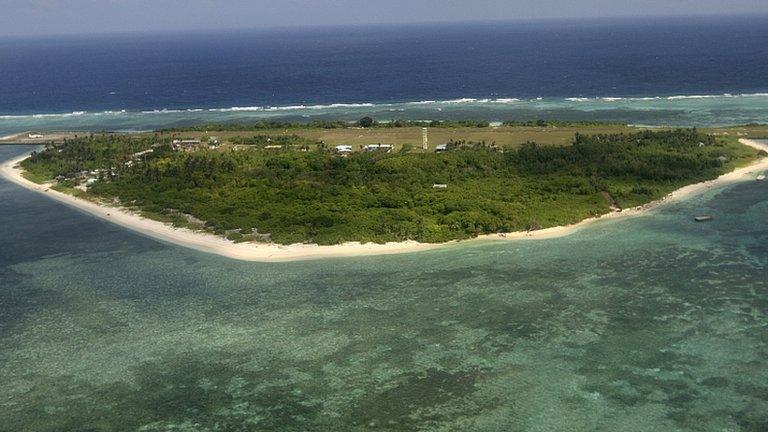South China Sea: Beijing attacks US 'trouble-making'
- Published
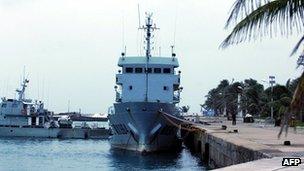
The US has expressed concern about the move to form a garrison in Sansha city
Chinese state media have hit out at US "trouble-making" on the South China Sea, two days after Beijing summoned a US diplomat on the issue.
One commentary told the US to "shut up" on the subject, while another said it had "deservedly evoked curses".
The response came after the US State Department said it was "closely" monitoring increased tensions in the South China Sea.
It also expressed concern over China's move to militarise a disputed island.
"In particular, China's upgrading of the administrative level of Sansha City and establishment of a new military garrison there covering disputed areas of the South China Sea run counter to collaborative diplomatic efforts to resolve differences and risk further escalating tensions in the region," acting deputy spokesman Patrick Ventrell said in a statement, external on Friday.
Sansha City lies on Woody Island in the Paracel Islands, which China has controlled since a battle in 1974 with Vietnam. Taiwan also claims the islands, whose population numbers only a few thousand, mostly fishermen.
The city was established in June as China's administrative base for the whole South China Sea area, including the disputed territories of the Spratly Islands and the Scarborough Shoal.
'Instigating'
Beijing summoned the US embassy's deputy chef de mission Robert Wang on Saturday to express "strong dissatisfaction" over the US comments.
And on Monday a commentary in the overseas edition of the People's Daily - the Communist Party mouthpiece - went further.
"The statement by the US side confuses right and wrong, strongly misleads public opinion, sends the wrong signal and and should be sternly refuted," it said. "We can completely shout to the US: Shut up."
China Daily, in its editorial, external, also accused the US of "outright trouble-making".
"If the White House is interested in restoring peace in the South China Sea, it should talk the real trouble-makers into behaving. The truth, however, is that it has been instigating the other countries in the disputes and even arming them, while blaming China for its defensive moves."
China lays claim to a U-shaped swathe of the South China Sea, overlapping areas claimed by the Philippines, Vietnam, Taiwan, Brunei and Malaysia.
There are thought to be significant oil and gas reserves below parts of the sea that are subject to ownership disputes.
In recent years, tensions over the issue have increased amid growing assertiveness from China over its maritime claims.
This year ties between Beijing and both Manila and Hanoi have been frayed over separate South China Sea rows.
Last month, the Asean (Association of Southeast Asian Nations) countries failed for the first time in the bloc's 45-year history to issue a joint statement because of rows over the maritime disputes.
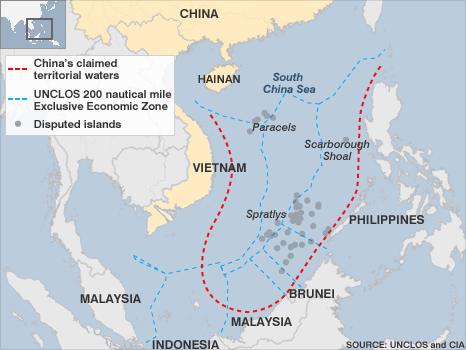
- Published1 August 2012
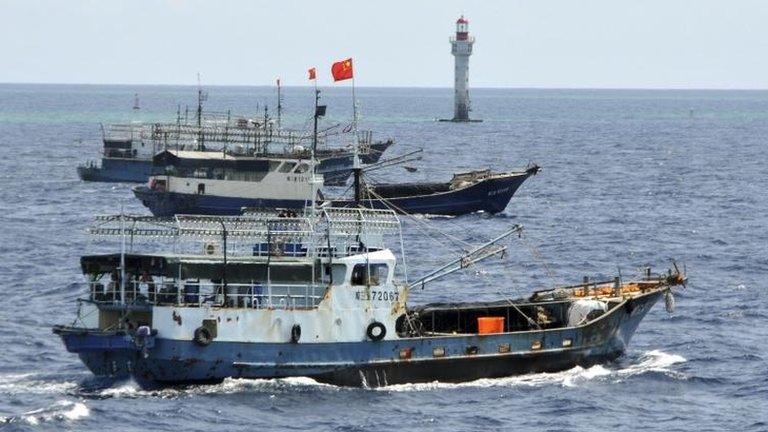
- Published19 July 2012
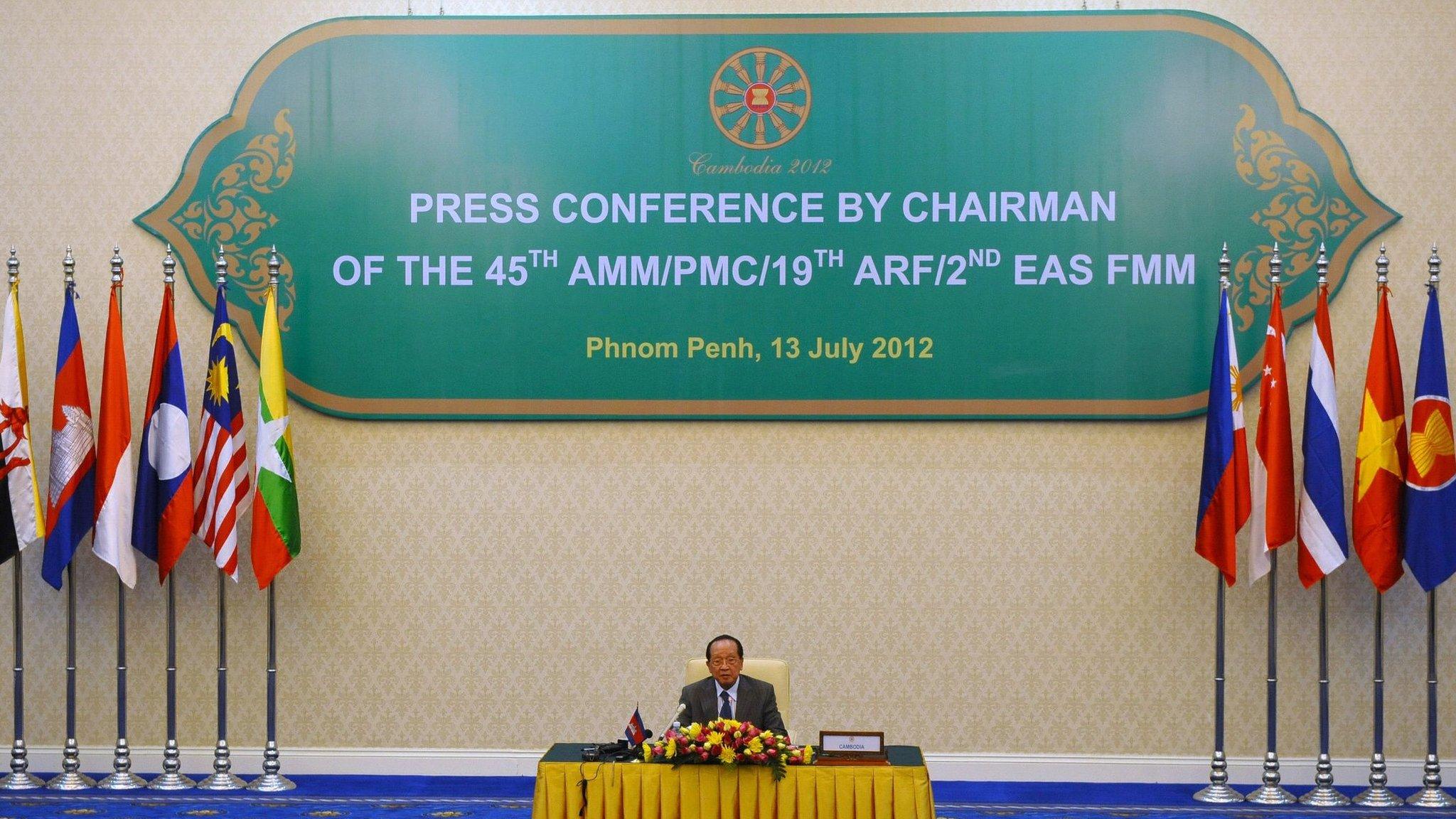
- Published7 July 2023
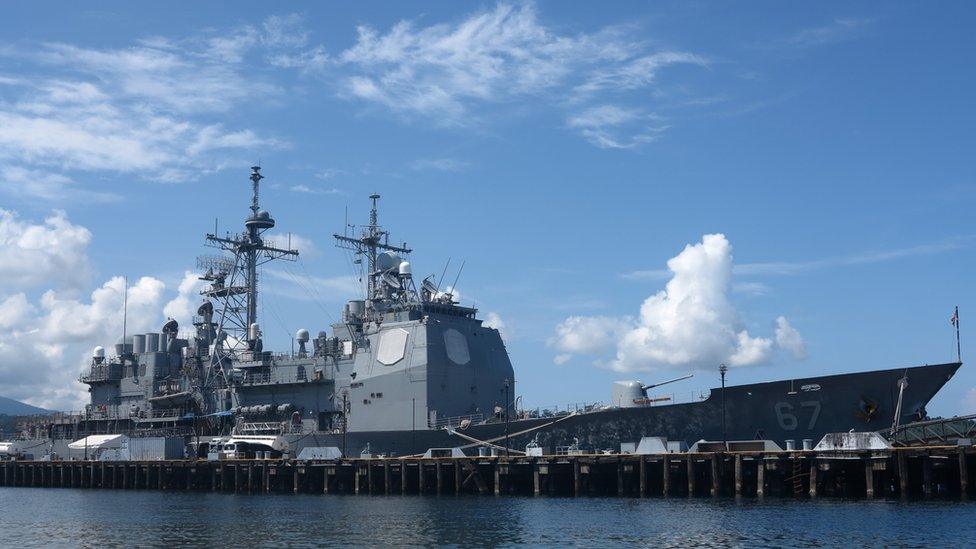
- Published25 May 2012
